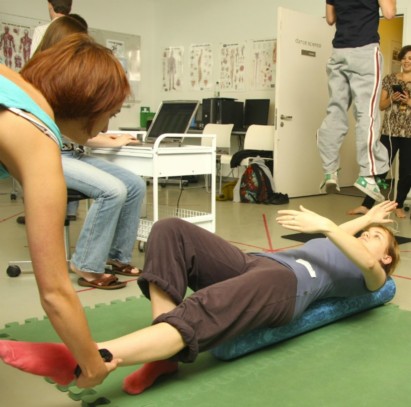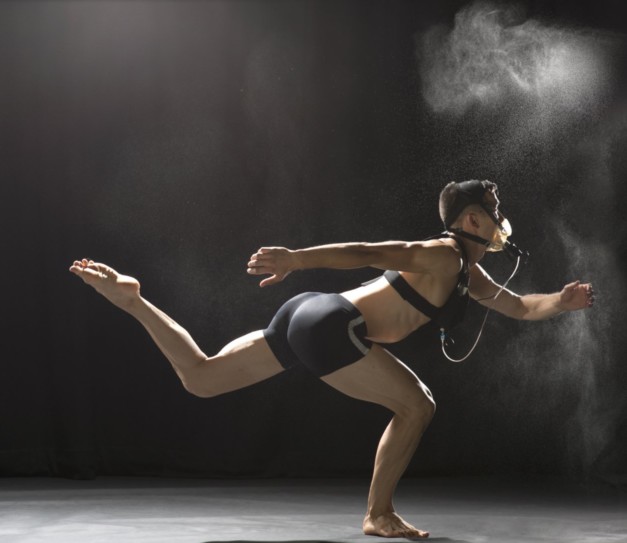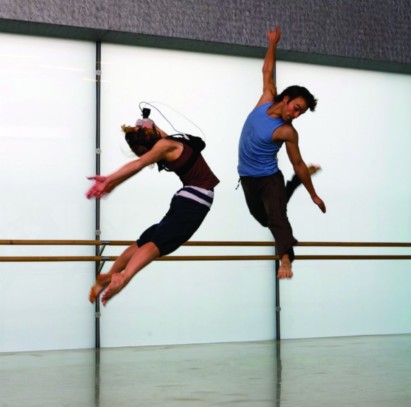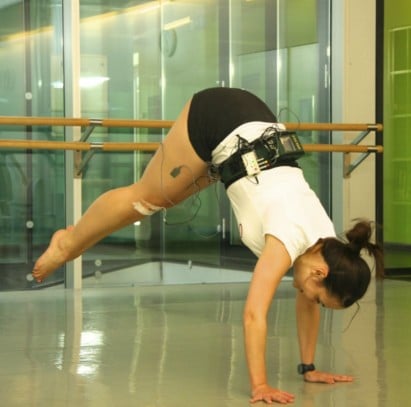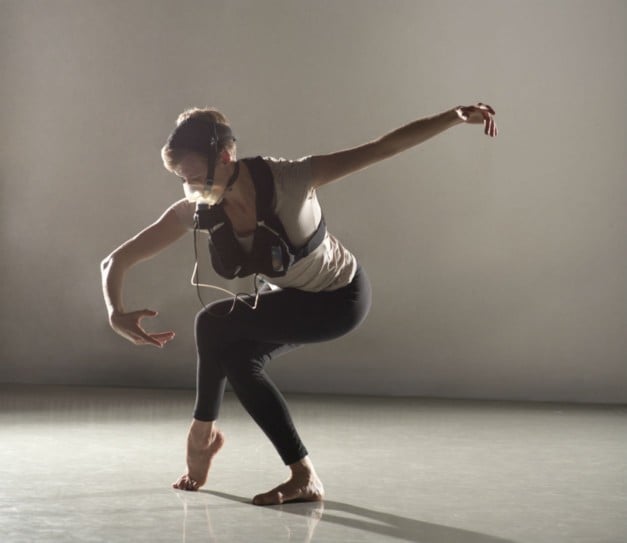Dance Science Gallery
On our dance science programmes you can explore dance practice and performance from theoretical and applied perspectives, through a range of scientific disciplines and in a variety of dance contexts.
This research-focused programme allows you to study dance science within a world-renowned conservatoire. It focuses on applying research to dance practice across recreational, training, and professional settings. This programme is for anyone with prior dance experience who is interested in dance science, such as dancers, choreographers, scientists, teachers, lecturers and health practitioners.
Key Features
The MSc Dance Science is a research-led taught programme which focuses on understanding and investigating dancers and dance practice across recreational, training and professional settings through scientific approaches. From both a theoretical and applied perspective, the programme engages with qualitative and quantitative modes of research and practice, integrating interdisciplinary elements of dance science informed by a range of disciplines such as physiology, biomechanics, nutrition, psychology and somatic practices.
The programme offers the opportunity to develop and apply knowledge in a variety of areas, including enhancement of dance practice and performance, dancers’ wellness, and dance for health. The modules provide the opportunity to progress from the acquisition of critical foundations of performance science knowledge and skills, to focus on specific areas of knowledge and application in dance science, culminating with the development and implementation of a specialized and in-depth investigation of a chosen topic. Through the programme, students will have the opportunity to engage in laboratory and studio-based learning activities and perform a series of research-oriented tasks, including the design and execution of an independent dance science research study. The integrative nature of the programme and the diversity of experiences and backgrounds of both students and faculty makes it a thriving and organic interdisciplinary learning experience.
Msc Dance Science (Level 7)
| Modules | Credits |
| Approaches to Performance Research | 30 |
| Foundations in Performance Science | 30 |
| Performing Research 1 | 15 |
| Performing Research 2 | 15 |
| Applications in Dance Science | 30 |
| Project | 60 |
For more details, take a look at the programme specification or email the Programme Leader, Catherine Haber: c.haber@trinitylaban.ac.uk
The MSc Dance Science consists of approximately 1800 notional learning hours. The five taught modules vary in their contact hours relative to the module aims and awarding credits (for an outline of contact hours per module, refer to the individual module specifications).
Following a blended learning approach, students will learn through a wide variety of flexible learning and teaching methods both in digital and in person learning environments, underpinned by a significant amount of self-directed learning. The learning and teaching strategies include webinars and seminars, digital and practical workshops, group and individual tutorials, peer and tutor led discussions, mini-conference days, studio-and lab-based application, as well as independent and self-directed work. Students will be encouraged to work collaboratively with peers within and external to their programme as part of their learning experience.
To assist learning, students will have access to a range of additional support provided by the dance science laboratory team, student support, audio-visual and digital enhanced learning teams, as well as library support. Individual and/or group tutorial support is offered to students in preparation for assessments. Academic tutor office hours are also available to students.
The range of summative and formative assessments are designed to reflect the knowledge and skills required of graduates entering the dance science sector and centre on a critical examination of dance science theory and research as applied to dance practice. Students will be assessed according to their ability to meet the learning outcomes for the module, and against any specific assessment criteria provided.
Assessment tasks include developing a project proposal, provide a learning portfolio that includes a range of learning tasks (e.g., reports, critical reviews), group project lab reports and poster presentations, a case study, and culminates with a written journal article.
Assessment modes include individual and group assessments in written, oral and practice-based presentations, in digital and/or in person contexts.
Graduates often go on to become consultants for dance companies, training institutions and national dance organisations. They can become teachers and lecturers and go onto further study. Graduates use their dance science knowledge to inform their own practice as dancers, teachers, rehearsal directors or choreographers.
“I met life-long mentors, colleagues, and friends and encountered incredible opportunities; above all, I was nurtured as a dance artist, researcher and academic”.
– Dr Shantel Ehrenberg, MSc student 2005/6, Lecturer in Dance, University of Surrey
Internships
Lecturing Positions
Health and Education Positions
Research Degree Programme
In the past five years, four graduates have enrolled on the Research Degree Programme at Trinity Laban, one of whom was awarded a fully funded studentship as part of a larger project grant from The Leverhulme Trust, and another has been awarded an ESRC PhD studentship for the University of Bath.
For information on MPhil/PhD study in Dance Science, email the Head of Dance Science, Professor Emma Redding: e.redding@trinitylaban.ac.uk.
For more information on the successes of Trinity Laban’s MSc Dance Science graduates and what they have to say about the course, visit Alumni Profiles.
Also, a reference list of graduate publications, posters and presentations is available.
IELTS Band 6.5 overall with a minimum of 5.5 in all four areas (General English Test) or above (or equivalents).
If you require a Student visa to study in the UK, please be aware of its English language requirements, as they may differ. Secure English Language Tests and levels can be found at gov.uk. In addition, meeting external requirements of UK Visas and Immigration is essential.
Please visit the Dance Applications page for full details of entry requirements and the application process for this programme.
Fees are reviewed annually and may increase by up to 5% each year. The following fees are confirmed.
| Full Time: September 2024 entrants | ||
|---|---|---|
| Year | HOME | INTERNATIONAL |
| 2024/25 | £10,630 | £22,520 |
| Part Time: September 2024 entrants | ||
|---|---|---|
| Year | HOME | INTERNATIONAL |
| Year 1: 2024/25 | £5,930 | £12,540 |
| Year 2: 2025/26 | £6,160 | £13,040 |
| Total Fee: | £12,090 | £25,580 |
| Full time: September 2024 entrants | ||
|---|---|---|
| Year | HOME | INTERNATIONAL |
| Year 1: 2024/25 | £6,110 | £13,770 |
| Year 2: 2025/26 | £6,350 | £14,320 |
| Total Fee: | £12,460 | £28,090 |
| Full Time: September 2023 entrants | ||
|---|---|---|
| Year | HOME | INTERNATIONAL |
| 2023/24 | £10,230 | £21,660 |
| Part Time: September 2023 entrants | ||
|---|---|---|
| Year | HOME | INTERNATIONAL |
| Year 1: 2023/24 | £5,700 | £12,060 |
| Year 2: 2024/25 | £5,930 | £12,540 |
| Total Fee: | £11,630 | £24,600 |
This information can be found on our Costs of Living page.
Read about financial awards and external funding opportunities in the Fees and Finance section.
| UCAS | 801F (full time) / 804P (part time) |
|---|---|
| Location | Laban Building |
| Duration | 1 year (full time) / 2 years (part time) |
| Start Date | September 2024 |
On our dance science programmes you can explore dance practice and performance from theoretical and applied perspectives, through a range of scientific disciplines and in a variety of dance contexts.
Seema Chopra / MSc Dance Science
